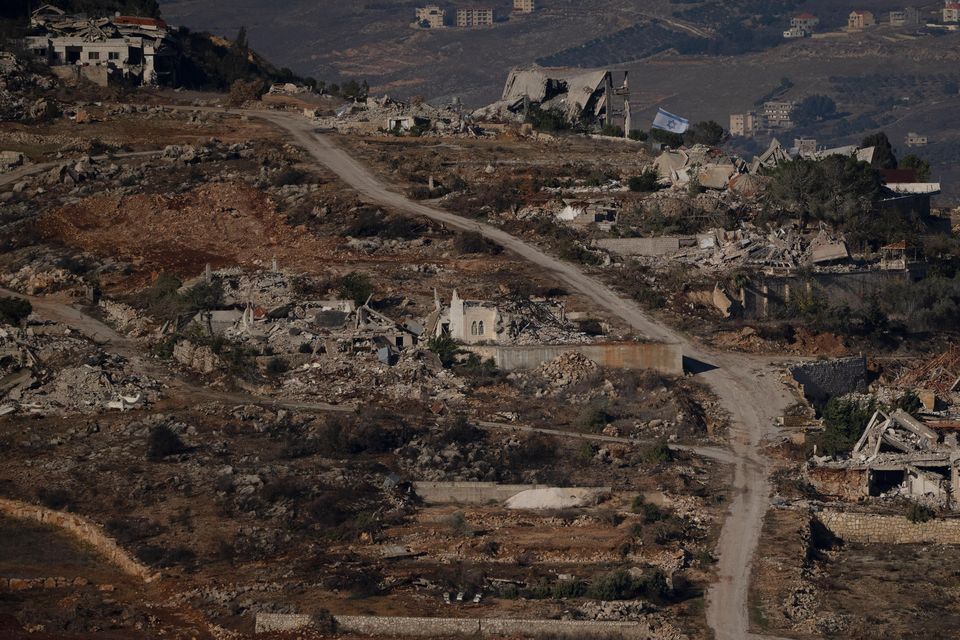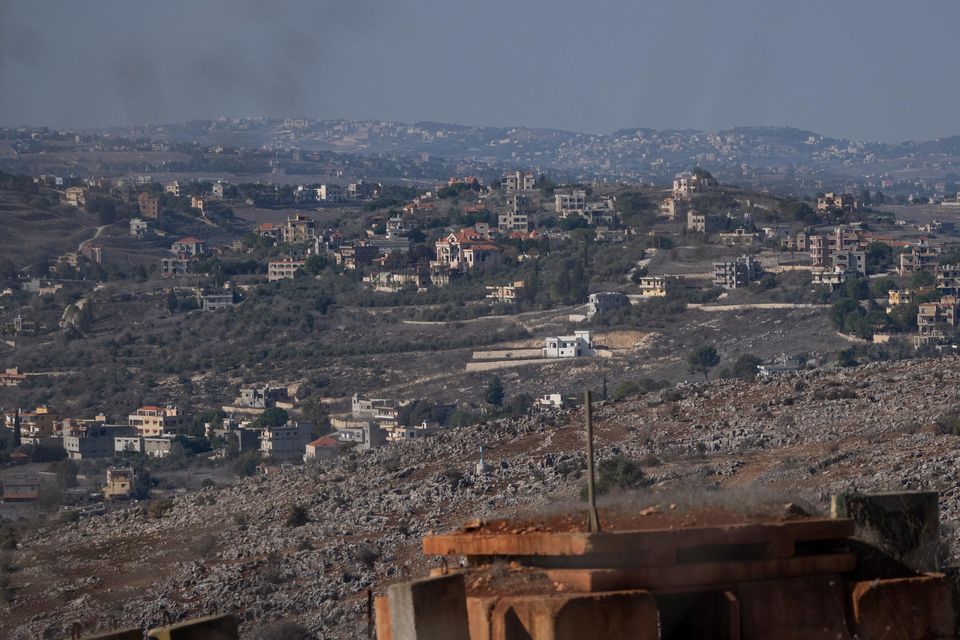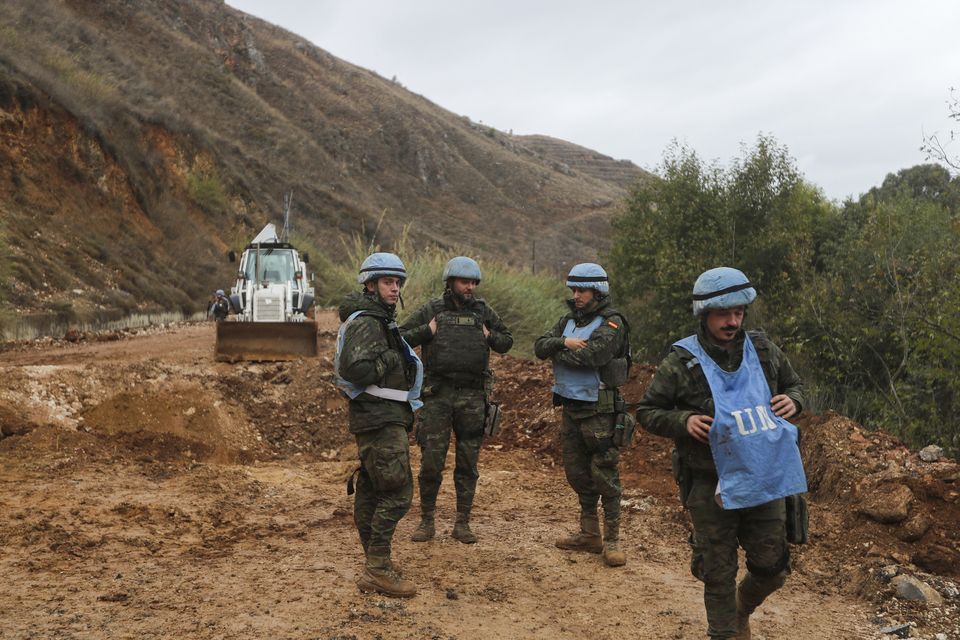Israeli jets launched an airstrike over a southern Lebanese border village on Sunday, while troops shelled other border towns and villages still under Israeli control, according to Lebanon’s state-run National News Agency.
The attacks come days after a US-brokered ceasefire agreement between Israel and Hezbollah went into effect. There were no immediate reports of casualties.
The Israeli military did not immediately comment on the strike in the village of Yaroun, nor did the Hezbollah militant group.
Destroyed buildings in an area of the village of Odaisseh in southern Lebanon (Leo Correa/AP)
Israel continues to call on displaced Lebanese people not to return to dozens of southern villages in this current stage of the ceasefire.
It also continues to impose a daily curfew for people moving across the Litani River between 5pm and 7am.
Caretaker Prime Minister Najib Mikati and the Lebanese military have been critical of Israeli strikes and overflights since the ceasefire went into effect, accusing Israel of violating the agreement.
The military said it had filed complaints, but no clear military action has been taken by Hezbollah in response, meaning that the tense cessation of hostilities has not yet broken down.
When Israel has issued statements about these strikes, it says they were done to thwart possible Hezbollah attacks.
The United States military announced on Friday that Major General Jasper Jeffers alongside senior US envoy Amos Hochstein will co-chair a new US-led monitoring committee that includes France, the UN peacekeeping mission in southern Lebanon known as Unifil (UN interim force in Lebanon), Lebanon and Israel.
Backdropped by a Lebanese village an Israeli army position sits near the Israeli-Lebanese border, during the ceasefire between Israel and Hezbollah (Leo Correa/AP)
Mr Hochstein led over a year of shuttle diplomacy to broker the ceasefire deal, and his role will be temporary until a permanent civilian co-chair is appointed.
Lebanon, meanwhile, is trying to pick up the pieces and return to some level of normal life after the war that decimated large swathes of its south and east, displacing an estimated 1.2 million people.
The Lebanese military said it detonated unexploded munitions left over from Israeli strikes in southern and eastern Lebanon.
Elsewhere, the Lebanese Civil Defence said it removed five bodies from under the rubble in two southern Lebanese towns over the past 24 hours.
The first phase of the ceasefire is a 60-day cessation of hostilities where Hezbollah militants are supposed to withdraw from southern Lebanon north of the Litani River and Israeli troops withdraw from southern Lebanon into northern Israel.
Lebanese troops are to deploy in large numbers in the south, effectively being the only armed force in control of the south alongside Unifil peacekeepers.
UNIFIL peacekeepers are among those to be deployed to southern Lebanon as part of the ceasefire (Mohammed Zaatari/AP)
But challenges still remain at this current stage. Many families who want to bury their dead deep in southern Lebanon are unable to do so.
The Lebanese Health Ministry and military allocated a plot of land in the coastal city of Tyre for those people to be temporarily laid to rest.
Dr Wissam Ghazal of the Health Ministry in Tyre said almost 200 bodies have been temporarily buried in that plot of land until the situation near the border calms down.
In the meantime, cash-strapped Lebanon is trying to fundraise as much money as it can to help rebuild the country. The war cost some 8.5 billion dollars (£6.6 billion) in damages and losses according to the World Bank.
Parliament Speaker Nabih Berri also called for parliament to convene to elect a president next month to break a gridlock of over two years and reactivate the country’s crippled state institutions.


